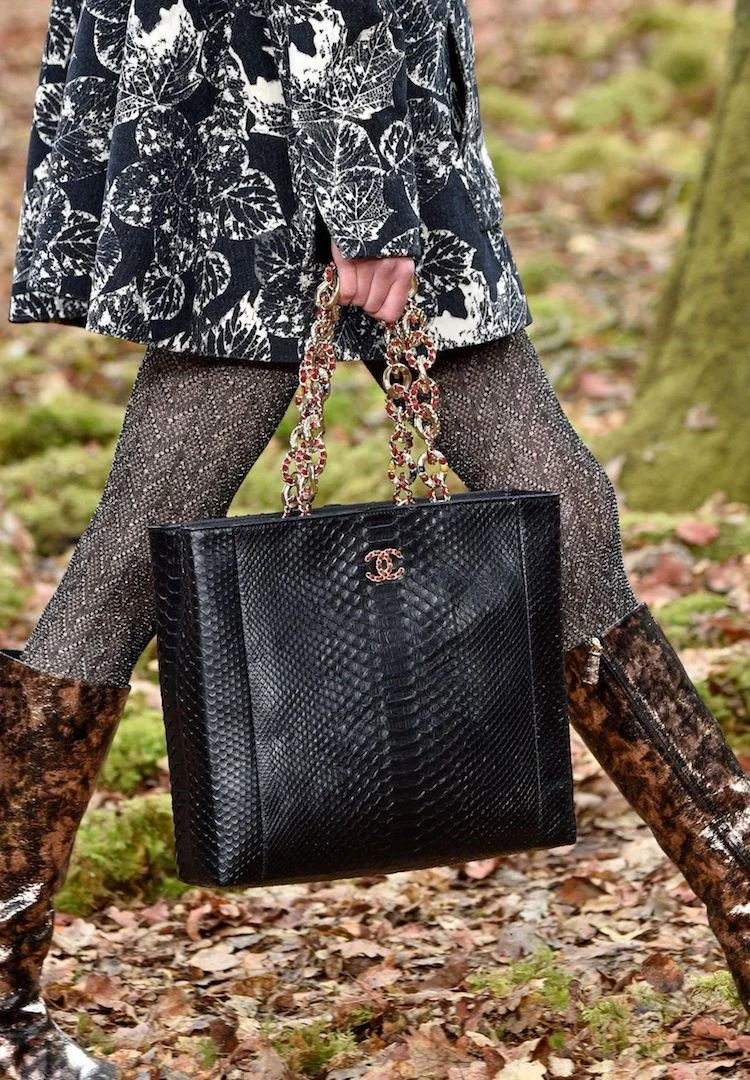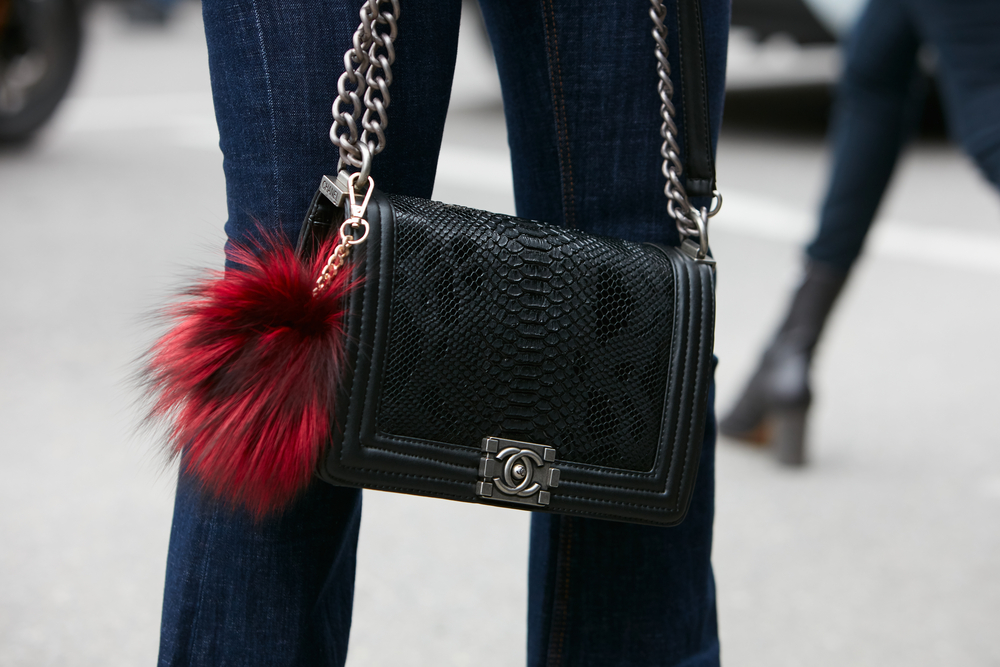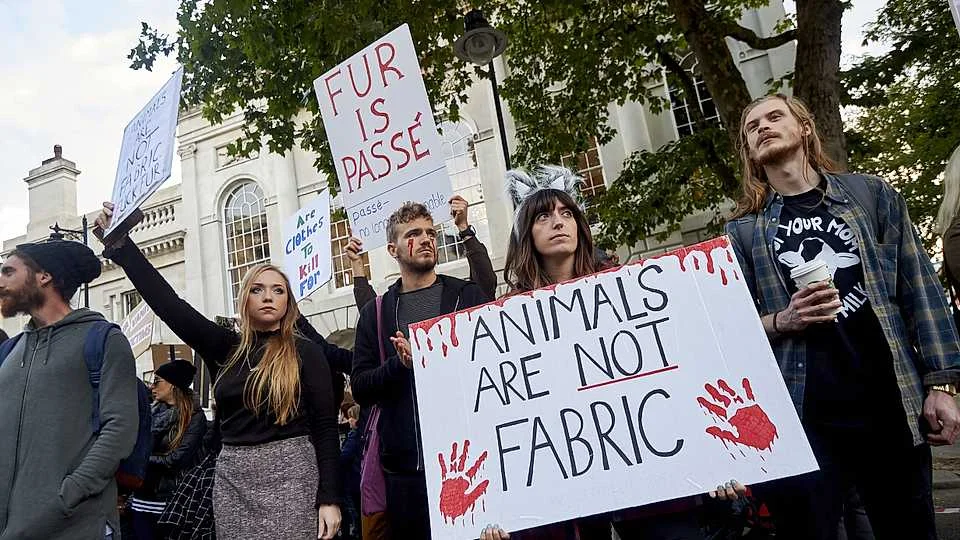Chanel is Shedding the Use of Exotic Skins
A python Chanel piece featured in Chanel’s Fall 2018 runway show. Source of image can be found via.
Haute couture looks have been dominated by the use of exotic skins and furs for years. However, world-renowned Parisian house Chanel recently announced that it will stop producing items made from “snakes, crocodiles, lizards, and other exotic skins.”
Clothing and accessories produced from these skins are often purchased at higher price-points and have symbolized greater luxury compared to items made of leather or other materials. For example, a Chanel “Classic” flap handbag made from python skin retails for $10,300, which is almost double the price of the same style of handbag made from calfskin.
In recent years, animals-rights activists have been less successful advocating for the ban on exotic skins, as opposed to fur. As a result, Chanel’s recent decision has been quite shocking for animals-rights activist groups such as People for the Ethical Treatment of Animals (PETA). To voice their approval of Chanel’s decision and to further the cause, PETA has purchased Chanel shares.
A black Chanel python “Boy Bag.” Source of image can be found via.
However, the decision to discontinue the use of exotic skins and furs was not a direct result of years of animals-rights activism and protests. In a statement released by Chanel, the house stated that the main reason behind their decision to stop using exotic skins and furs was the difficulty in sourcing the materials responsibly. Rather than completely eliminating exotic skins in their items, other luxury brands have made steps to source their materials ethically. Kering, which owns companies like Gucci, Saint Laurent, and Balenciaga, has made it a goal to source all of its alligator skin ethically and even invested in a python farm in Thailand. However, PETA’s manager of fashion companies, Christina Sewell, states that it is actually impossible to ensure that exotic skins are sourced ethically because the supply chain is too complex.
The decision to move towards more ethically sourced materials and away from fur has been a popular move for several brands recently. Brands like Gucci, Burberry, Michael Kors, and Versace have either stopped designing products with fur or have announced plans to cut fur out of their supply chain as of 2016. In 2018, San Francisco and Los Angeles announced plans to prohibit the sale of fur.
Anti-fur protesters outside of London Fashion Week S/S 2018. Source of image can be found via.
More recently, a fashion industry charter for climate action was established and launched at the United Nations climate change conference, COP24. Brands like Stella McCartney, Burberry, adidas, and H&M group make up a few of the forty signatures.
This movement of designers towards ethical and sustainable measures undoubtedly reflects a shift in consumer preferences. According to a Business of Fashion article, “many millennial and Gen-Z luxury consumers say they prefer to buy products that are ethically sourced and have minimal environmental impact.” As consumers are becoming increasingly concerned about the environmental impacts of the fashion industry, we can hopefully expect to see more houses and designers turning towards more ethical measures.
Feature image via.









